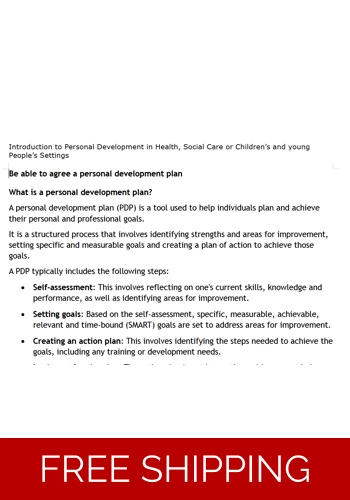Key Worker Childrens Residential Care - Techniques and Support
Key Worker Skills (Techniques and Support). Suitable for Looked After Children Residential Care
Enough resources for single sessions, single aspects or a one day course with workshops. All editable.
13 Files in total (Presentation (in section) , Handouts x 3, Case Studies x 20, Learning Activity documents x 4 and End of Session Multiple Choice Assessments x 4).
Each learning activity file has 5 case studies (for those wishing to run workshops).
Overall Aim:
- To equip participants with the knowledge, skills and understanding necessary to foster a supportive and empathetic environment in residential care settings, ensuring the emotional well-being of both families and workers while maintaining high standards of care provision
Learning Objectives:
- Gain insight into the emotional impact on families and individuals and develop empathy.
- Acquire techniques for conducting key work sessions and informal activities.
- Enhance listening skills for effective communication and support.
- Recognise the significance of personal and professional care and supervision in ensuring quality care provision.
Presentation (101 slides)
Aims and Objectives
Introduction
Section: The Emotional Impact
Introduction
Empathy
Compassion
Approaching Interactions with Sensitivity and Understanding
Active Listening and Validation
Building Trust and Rapport
Active Listening and Empathetic Responses
Offering Reassurance and Validation
Practical Support and Information
Ongoing Communication and Follow-Up
Recognising the Grieving Process
Acknowledging Feelings of Loss
Offering Support and Validation
Encouraging Coping Strategies
Promoting Meaningful Connections
Understanding Feelings of Guilt and Shame
Creating a Safe and Supportive Environment
Empathy and Nonjudgmental Support
Encouraging Self-Compassion
Providing Information and Resources
Recognising Resilience
Celebrating Strength
Validating Efforts
Empowering Participation
Encouraging Growth and Adaptation
Section: Acquire Techniques for Conducting Key Work Sessions and Informal Activities
Introduction
Importance of Effective Engagement
Goals and Objectives
Effective Strategies
Young Children
Adolescents
Regardless of Age
Mental Health
Substance Abuse
Section: Planning and Preparation for Key Work Sessions
Introduction
Assessment of Needs, Setting Clear Goals
Gathering Resources, Environment
Review, Collaboration, Anticipating Challenges
Flexibility, Resident Input, Reflection
Section: Facilitation Techniques and Communication Skills
Introduction
Active Listening, Open Ended Questions, Reflective Responses
Empathetic & Non Verbal Communication, Clarification
Encouragement, Validation, Cultural Sensitivity, Flexibility, Feedback, Reflection
Section: Promoting Participation and Engagement in Informal Activities
Introduction
Offering Choice, Creating a Welcoming Environment
Facilitating Group Dynamics, Tailoring Activities
Creativity & Variety, Support & Encouragement, Autonomy & Self Determination
Creativity & Variety,
Support & Encouragement, Autonomy & Self Determination
Section: Creating Meaningful Connections: Building Rapport and Trust
Introduction
Active Listening, Respect & Empathy, Consistency, Clear Communication
Personal Connections, Confidentiality, Approachability
No Judgement, Celebrate Success, Feedback & Collaboration
Section: Addressing Challenges and Overcoming Barriers
Introduction
Identifying Potential Obstacles, Problem Solving, Flexibility
Resilience and Support
Empowering Residents, Continuous Evaluation and Improvement
Section: Personal and Professional Care and Supervision
Introduction
Professional Development
Quality Assurance
Reflective Practice
Support and Wellbeing
Ethical and Legal Compliance
Balancing Personal and Professional Care Responsibilities
Effective Supervision – Open Communication
Effective Supervision – Active Participation
Effective Supervision - Reflective Practice
Effective Supervision - Goal Setting
Effective Supervision – Seeking Support
Nurturing Well-being: Self-Care
Effective Strategies – Self Care
Maintaining Boundaries: Personal and Professional Ethics
Section: Summary and Key Points
References and Further Reading
Word Documents
3 Handouts
4 End of Session Assessments
20 Case Studies
4 Learning Activities
HSC Training Link
Training Resources for Health and Social Care
Supplying training resources for the health and social care sector since 2004.
Resources purchased are emailed to you via Zip Folder attachment or via Microsoft 365 link (your choice).
All packs are written in a generic style and can easily be adapted to suit your own specific training delivery.
Secure payments via PayPal Merchant Commerce Platform.
You do not need a PayPal account to use this payment
gateway.
Debit and credit card payments accepted.














